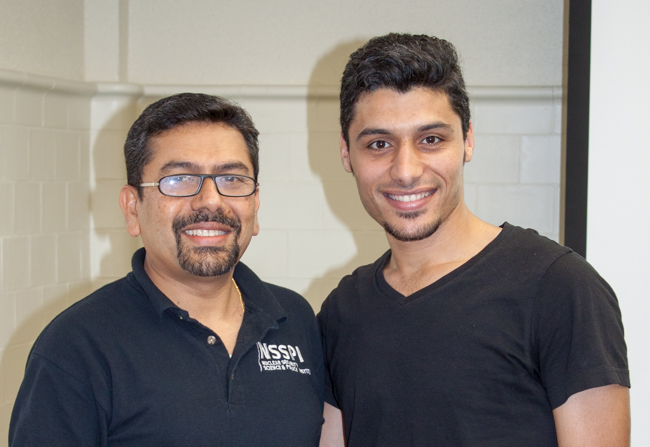
Mohammed Hawila will be receiving his Master of Science degree in nuclear engineering from Texas A&M University in December. He worked with Dr. Sunil Chirayath to analyze security, safety, and combined safety-security risk for possible accident scenarios. The outcome of his research is a methodology to perform combined safety and security risk analysis to compute the frequency of joint top-event system failures.
Hawila received his Bachelor of Science degree in nuclear engineering from the Jordan University of Science and Technology in 2012. He worked as a radiation safety engineer in radiography, and then joined the Jordan Atomic Energy Commission. Before coming to Texas A&M to begin his graduate studies, he participated in a summer nuclear security certificate program with NSSPI for international professionals in 2014, which was supported by the U.S. Department of State’s Partnership for Nuclear Security. He also completed a semester-long internship at NSSPI in the spring of 2015. During his time at NSSPI, he presented a paper on nuclear security risk analysis and insider-outsider collusion at the 2015 annual meeting of the Institute for Nuclear Materials Management (INMM), a paper on combined safety-security risk analysis at the 2016 INMM annual meeting, and a paper on the probabilistic risk assessment of spent fuel cooling system failure of safety and security initiating events at the 2016 winter meeting of the American Nuclear Society.
Hawila successfully defended his Master’s thesis in October of 2016, and upon graduation will be joining Texas A&M Associate Professor Dr. Karen Vierow Kirkland’s research group as a Ph.D. student working on experimental and simulated thermal-hydraulic reactor systems response.